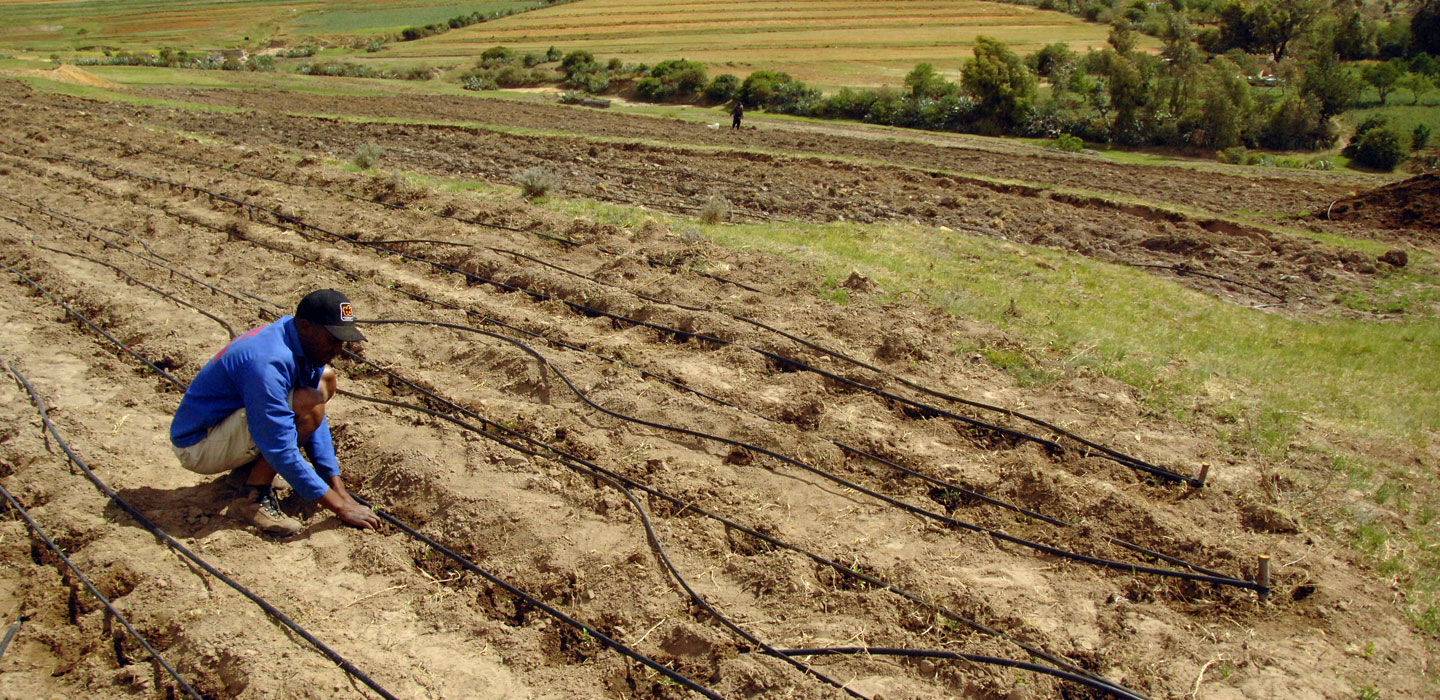Lesotho and IFAD join to improve the livelihoods of the most vulnerable small-scale farmers
IFAD Asset Request Portlet
Asset Publisher
Lesotho and IFAD join to improve the livelihoods of the most vulnerable small-scale farmers
23 September 2020
Rome, 23 September 2020 –160,000 poor rural households in Lesotho will benefit from new financing for a project that will boost food security and nutrition, mitigate the impact of climate change and strengthen livelihoods for greater income. Women, who typically have limited access to land and finance, will make up 50 per cent of the project’s participants. About 35 per cent will be young people who face high rates of unemployment.
The $62 million project, which will provide the means for a six-year extension of the successful Smallholder Agriculture Development Project (SADP I), was announced today by the International Fund for Agricultural Development of the United Nations (IFAD). Gilbert F. Houngbo, President of IFAD, and Thabo Sophonea, Minister of Finance of the Kingdom of Lesotho, signed the financing agreement for the Smallholder Agriculture Development Project (SADP II) by correspondence.
The total project financing amounts to $62 million, with $50 million from the World Bank and a $5 million loan from IFAD. The beneficiaries themselves are providing $5 million, and JICA will contribute an additional $2 million. The project will reach all 10 districts of the kingdom, an increase from the 7 districts reached through SADP I.
SADP II will build on the achievements of the project’s first phase. It aims to empower women and youth who are especially vulnerable to climate-related events and other shocks. According to the International Labour Organization, 38.5 per cent of young people in Lesotho, aged 15-24, are unemployed. The creation of sustainable rural employment opportunities will lead to increased incomes and greater long-term resilience.
“In the face of COVID-19, it is even more important that we not allow that progress achieved against poverty during SADP I be lost, or that hunger be allowed to increase,” said Philipp Baumgartner, Country Director for Lesotho. “Small-scale farmers need greater support so that food production, processing and marketing continue, contributing to the country’s food security and economy. I am particularly happy to see an increased focus on youth entrepreneurship and nutrition aspects in this second phase of SADP. ”
SADP II will promote the cultivation of cash crops, such as fruits and vegetables, and will link farmers to markets where they can sell their products. Project participants will also benefit from new technologies for land and water management including the modernization of irrigation infrastructure to reduce producers’ dependence on rain-fed farming. Furthermore, the project will train participants’ on nutrition, food preparation and better hygiene.
Since 1995, IFAD has invested $92.1 million in 11 rural development programmes and projects in the Kingdom of Lesotho worth a total of almost $232.6 million. These projects have directly benefited 339,720 rural households.
Press release No.: IFAD/42/2020
IFAD invests in rural people, empowering them to reduce poverty, increase food security, improve nutrition and strengthen resilience. Since 1978, we have provided US$22.4 billion in grants and low-interest loans to projects that have reached an estimated 512 million people. IFAD is an international financial institution and a United Nations specialized agency based in Rome – the United Nations food and agriculture hub. More about IFAD: www.ifad.org.